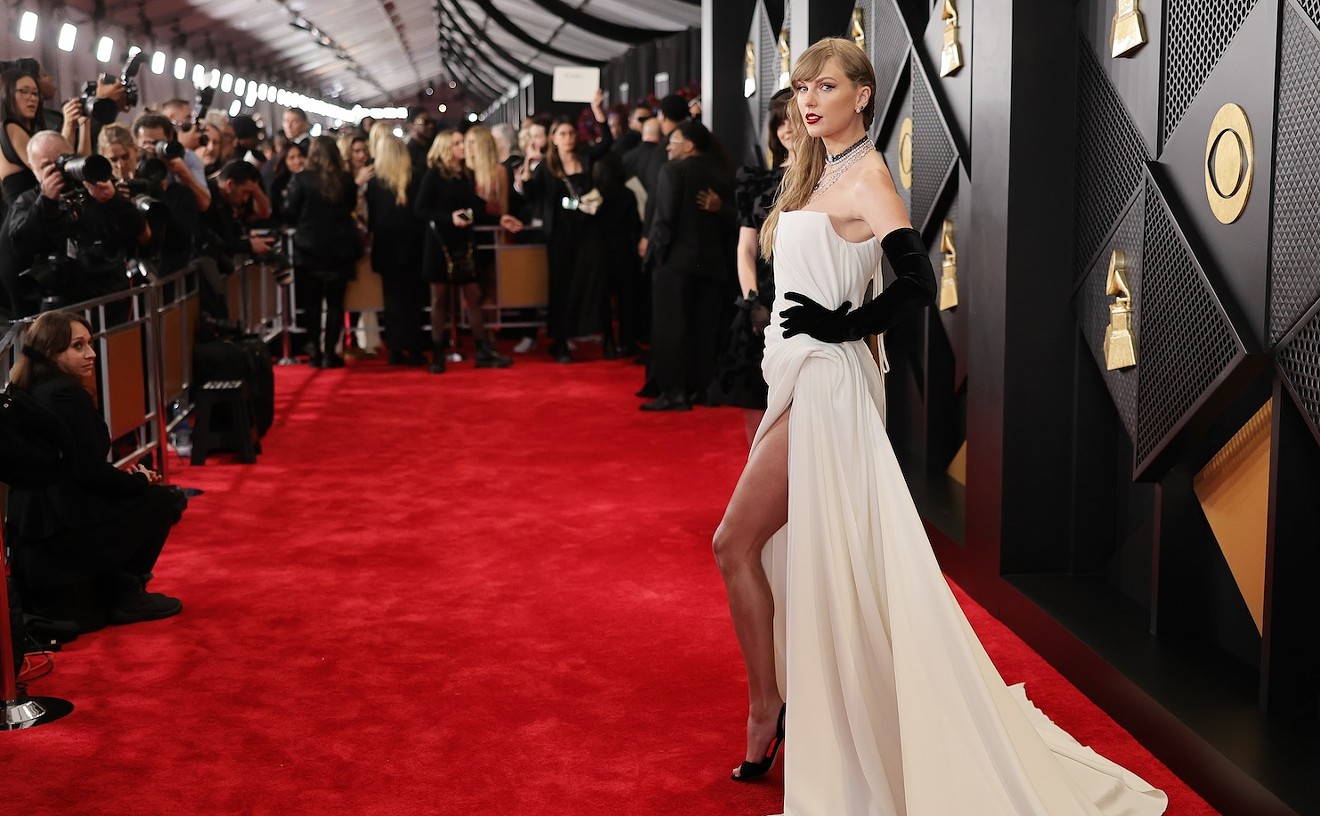Comparable to the way some in Jamaica perceive dancehall reggae, many older, upper-middle-class Puerto Ricans regard reggaetón with contempt. Younger audiences, however, embrace it as an identifying and empowering aspect of contemporary Puerto Rican culture.
There are several popular male reggaetón artists, including Tego Calderón, Daddy Yankee, and Vico C, but only one successful female artist: its queen, Ivy Queen (pronounced Eve-y), who was the only female rapper to perform at a recent Madison Square Garden reggaetón extravaganza. Ivy Queen was born Martha Ivelisse Pesante in Puerto Rico in 1972. Although she adorns her natural bronze beauty with dramatic makeup, lacquered four-inch fingernails, and platinum accessories, Ivy doesn't want her flamboyant image to belie the significance of her rhymes. Incorporating a range of influences from Missy Elliott to dancehall's Lady Saw to the late Queen of Latin Soul La Lupe, Ivy Queen has throughout her eleven-year career addressed women's issues such as domestic violence and sexual fidelity. Her quest, she says, is to enlighten and empower her female fans.
Ivy Queen got her start as the first female rapper recruited into the twenty-member group the Noise, headed by reggaetón trailblazer DJ Negro. "I was a hardcore girl coming into this; I have a strong voice and I am not trying to be soft," explains Ivy in a phone interview from Puerto Rico. "The song I came out with then, 'Somos Raperos Pero No Delincuentes,' was talking about when women are abused by their husbands or boyfriends. It was very underground at the time and I was coming with strong words, something social, so everybody paid attention to me. People see me as a Barbie, but I let them know I am real."
Ivy carried on similarly throughout her 1996 solo debut, En Mi Imperio (In My Kingdom) on the House of Music label, which sold 80,000 copies. The title of her 1998 release, The Original Rude Girl (Sony Discos), describes her completely, she says. The word "rude" carries with it strong connections to the musical worlds of ska, mod, and rocksteady, styles with definite Anglo-Caribbean flair.
"In Jamaica rude girls are girls that are strong and can stand for themselves," Ivy Queen explains.
Rude Girl featured a solid collaboration with Wyclef Jean, which introduced her to a new audience, but Ivy Queen remains ambivalent about her experience with Sony because "big companies don't know the roots of this music or what to do with it." She spent the next few years performing and recording tracks for various reggaetón compilations and mixtapes, then in 2003 released Diva for the Miami-based Real Music label. The album, which she describes as her "pride and joy, my most personal yet," was recorded in New York and produced by her husband Omar Navarro.
Three Diva tracks are currently in rotation on Power 96 (WPOW-FM 96.5): "Yo Quiero Bailar" ("I Want To Dance"), "Papi Ti Quiero" ("Baby I'm Yours"), and "Tuya Soy" ("I'm Yours"). Ivy Queen is also featured on a Spanish-language remix of dancehall artist Sasha's hit "Sexy Body," with Ivy and Sasha delivering rhymes over Jamaican producer Tony Kelly's Bookshelf riddim. "Ivy Queen is kind of rough and Sasha has a more feminine, playful approach, so those two styles blend well," comments Murray Elias of VP Records, who remixed the Spanish version of "Sexy Body." "This could be a breakthrough record for Ivy Queen, where you see the Jamaican market embracing the reggaetón vibe."
Ivy Queen hopes for future collaborations with dancehall artists Elephant Man and T.O.K., but right now she and husband Omar are busy putting the final touches on her upcoming release for Real Music, Real. "My songs are always going to be real because they are feelings that people have," she asserts. "The hits that I have now, the girls love them because they are real. If I am feeling hurt and need to curse to express that, then I will. I am going to be real all the way because that's what made Ivy Queen."










